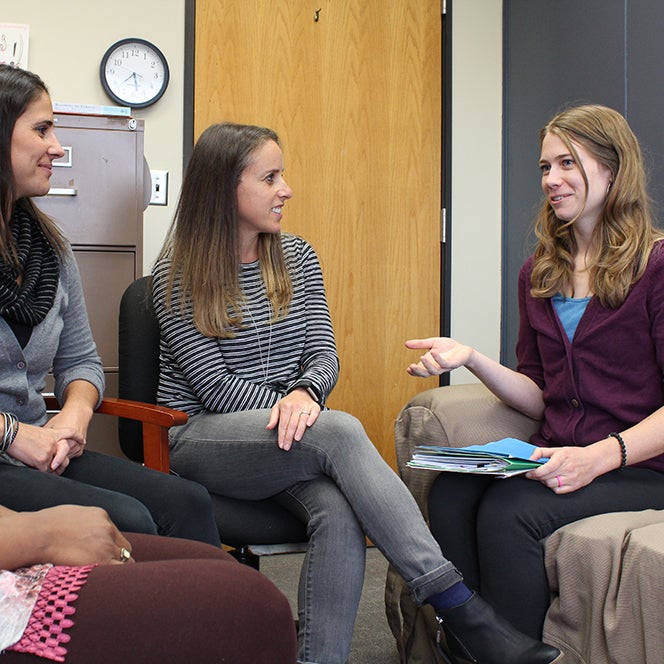
The Department of Counselor Education offers a master degree with two cognate programs in addiction or school counseling as well as a doctoral (PhD) degree. Our degree programs qualify graduates to practice in a variety of educational and behavioral health settings, while preparing students to become practicing scholars. The department’s inclusive learning community encourages professional growth, balancing challenging academic coursework with strong faculty support.
The MA in Counseling, Addiction Counseling Cognate is a Council for the Accreditation of Counseling and Related Educational Programs (CACREP) accredited master of arts degree program that prepares graduates to work with individuals and families affected by substance abuse and other addictive behaviors in education, prevention and intervention settings. This cognate area focuses on assessment, treatment, and relapse prevention as well as models of prevention and intervention for addiction. Graduates may choose to work in private practice or in a variety of community agencies offering counseling services for substance abuse. This 60 credit degree program includes a minimum of 800 hours of clinical experience and prepares graduates for the Professional Counselors in Idaho initial licensure and internship processes.
The MA in Counseling, School Counseling Cognate is a Council for the Accreditation of Counseling and Related Educational Programs (CACREP) accredited master of arts degree program that prepares graduates to work with students ranging from kindergarten to high school promoting academic, career, and personal/social development of students. This cognate area focuses on the design and implementation of comprehensive school guidance and counseling programs that include individual and group counseling, classroom guidance, and consultation within the school setting. Graduates of this 60 hour program may choose to work in both private and public school systems at the elementary, middle, and high school level. For Idaho Certification as a School Counselor, graduates must complete 700 clock hours of field experience (600 need to be in a K-12 setting). Completion of the School Counseling cognate meets Idaho school counseling certification requirements and the Professional Counselors in Idaho initial licensure requirements.
The PhD in Counselor Education and Supervision is an innovative and unique apprentice model doctoral program to train graduates as future CES faculty members and leaders in the field. Students receive individual faculty mentorship in theoretical study and practice, and have the opportunity to teach in the master’s level course. This apprentice model allows for intensive mentoring, providing students with opportunities to work with faculty in the areas of teaching, supervision, research and service. Doctoral students complete a practicum (150 clock-hours) and internship (600 clock-hours) where they deepen their clinical skills, have the opportunity to teach masters level counseling courses, provide supervision and conduct research in collaboration with program faculty. The program includes a dissertation in which the student conducts a guided investigation of a significant CES issue and development of a research agenda for publication.
Contact information for each degree can be found at the bottom of each program page by clicking on the “Request More Information” link. Guidelines and forms for graduate students as well as information about costs and scholarships can also be found on each program page.